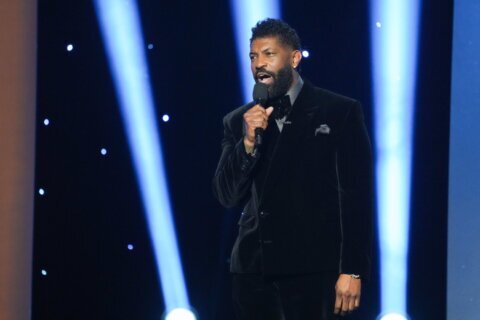It’s no secret that the Oscars have a diversity problem. In nearly 100 years, only four Black actors have won Best Actor and only one Black woman has won Best Actress.
In recent years, the Academy of Motion Picture Arts and Sciences has tried to expand its membership to include more women and people of color, which may explain Best Picture wins by “12 Years a Slave” (2013), “Moonlight” (2016) and “Parasite” (2019).
However, Monday added new fuel to #OscarsSoWhite by snubbing Black ensembles “One Night in Miami,” “Ma Rainey’s Black Bottom” and “Da 5 Bloods” for Best Picture.
Others cited historic inclusion with three out of five Best Actor nominees being people of color, including Chadwick Boseman as the posthumous favorite, Riz Ahmed as the category’s first ever Muslim, and Steven Yeun as the category’s first Asian American.
Every year, there are such silver linings in various categories, but year over year, one category has consistently shown the most signs of progress: Best Director.
Since the Coen Brothers won for “No Country for Old Men” (2007), only one white American male has won Best Director since — Damien Chazelle for “La La Land” (2016), though Barry Jenkins’ “Moonlight” famously triumphed for Best Picture.
Other than that, the Best Director category has mostly hailed international people of color for an immigrant success story that exemplifies the American Dream:
2019: Bong Joon-ho (“Parasite”) – Korean
2018: Alfonso Cuarón (“Roma”) – Mexican
2017: Guillermo del Toro (“The Shape of Water”) – Mexican
2016: Damien Chazelle (“La La Land”) – American
2015: Alejandro G. Iñárritu (“The Revenant”) – Mexican
2014: Alejandro G. Iñárritu (“Birdman”) – Mexican
2013: Alfonso Cuarón (“Gravity”) – Mexican
2012: Ang Lee (“Life of Pi”) – Taiwanese
2011: Michel Hazanavicius (“The Artist”) – French
2010: Tom Hooper (“The King’s Speech”) – British
2009: Kathryn Bigelow (“The Hurt Locker”) – American
2008: Danny Boyle (“Slumdog Millionaire”) – British
That’s right, in 11 of the past 12 years, Best Director has gone to someone other than a white American male, a streak that should extend to 12 out of 13 years next month.
That’s because only one white American male is up for Best Director as David Fincher (“Mank”) joins Lee Isaac Chung (“Minari”), Thomas Vinterberg (“Another Round”), Emerald Fennell (“Promising Young Woman”) and Chloé Zhao (“Nomadland”), who is poised to become the second Asian in a row and the second woman ever to win.
Before yesterday, 93 years of Oscar history only nominated five women directors: Lina Wertmüller (“Seven Beauties”), Jane Campion (“The Piano”), Sofia Coppola (“Lost in Translation”), Kathryn Bigelow (“The Hurt Locker”) and Greta Gerwig (“Lady Bird”).
That jumped 40 percent yesterday when the Academy nominated two women for the first time ever in Fennell and Zhao. It could have conceivably nominated four, but Kelly Reichardt (“First Cow”) and Regina King (“One Night in Miami”) were sadly snubbed.
While these racial and gender trends are positive, it doesn’t mean we’re in a post-racial society nor does it erase the sting of historic snubs, namely that a Black director has still never won, not Spike Lee (“Do the Right Thing”), not John Singleton (“Boyz N the Hood”), not Steve McQueen (“12 Years a Slave”), not Barry Jenkins (“Moonlight”).
Still, let’s salute the progress, knowing we’ve come a long way with a long way to go.







